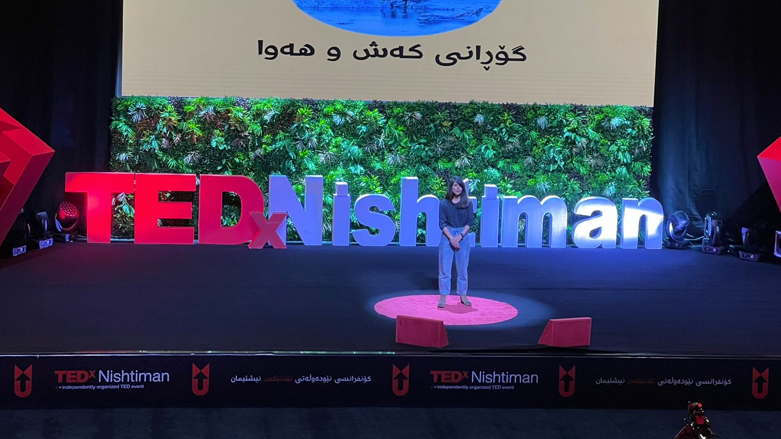Kurdistan cannot escape effects of climate change: specialist

ERBIL (Kurdistan 24) – Kurdistan cannot escape the effects of climate change, and more information needs to be made available about its impact, Peri-Khan Aqrawi-Whitcomb, a Non-Resident Fellow at the Payne Institute for Earth Resources at the Colorado School of Mines, told the fifth TEDxNishtiman hosted in Erbil on Saturday.
"The UNEP (United Nations Environment Programme) has ranked Iraq, including Kurdistan, the fifth most vulnerable country in the world to the effects of climate change, such as water scarcity, desertification, and extreme weather events – which will lead to food insecurity, migration, and conflicts over resources," Aqrawi-Witcomb warned.
"I know that some probably in the audience think to themselves: 'but what about all that snow? It even snowed in Hawler (Erbil)'. Unfortunately, this is just the beginning, witnessing the effects of climate change," she said.
Read More: Heavy rainfall in Kurdistan's Erbil leads to flash floods
She underlined that the "most effective way to inspire change with people is through storytelling."
"For a long time, we believed, especially scientists, that if only we produce enough information about the impact of climate change, politicians, people, policymakers would have acted with more urgency."
Aqrawi-Witcomb believes there is now momentum and growing concern over the impact of climate change. This provides an opportunity for journalists, educators, politicians, environmental advocates, and, therefore, civil society "to personalize climate communication and engage people effectively through the power of storytelling."
Last year, she pointed out, others spoke at the TEDxNishtiman about the importance of the environment.
Examples she gave were Rezhna, "who decided to make farm life cool again," and Basima Abdulrahman with "her globally renowned Green Building Consulting, KESK, that is based in Erbil."
Her "all-time favorite" is the Kurdistan Mountaineering club, which aims to revive "the love for our nature and teach us how to conserve it."
Read More: Former US climate ambassador says Kurdistan Region has part to play in world environmental efforts
"Despite the good intentions, we can't wait for governments or UN or tech giants to save us," Aqrawi-Witcomb said. "We need to get involved as individuals, bit by bit, to inspire collective action."
"Who else has a better position to find those stories of the everyday heroes and spread them to the masses: civil society?" she added. "It will be journalists, media, universities, religious communities, and you and me."
